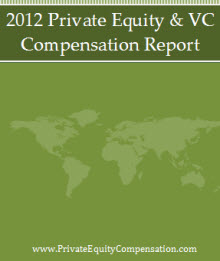Venture capital investing in the US shifted into top gear in the second quarter, leading to record levels of investment for a quarter marked by several large transactions. According to a report published by PricewaterhouseCoopers and the National Venture Capital Association, based on data provided by Thomson Reuters, a total of $13 billion was invested in the second quarter of 2014, marking the largest quarterly investment since the first quarter of 2001 when $13.1 billion was invested. With investments of $9.7 billion in the first quarter, venture capital investment for the first half of the year also hit a record high, totaling $22.7 billion, the highest first half total since 2001.
Top 10 Deals Took 20 Percent Investment
 The second quarter was punctuated by several large transactions including the largest ever (in a given quarter) venture capital deal of $1.2 billion. The $13 billion investment in the quarter was spread across 1,114 deals, representing an 80 percent jump in dollar investments, and an 11.4 percent increase in the number of deals over last year’s second quarter when $7.2 billion was invested in 1,000 deals.
The second quarter was punctuated by several large transactions including the largest ever (in a given quarter) venture capital deal of $1.2 billion. The $13 billion investment in the quarter was spread across 1,114 deals, representing an 80 percent jump in dollar investments, and an 11.4 percent increase in the number of deals over last year’s second quarter when $7.2 billion was invested in 1,000 deals.
San Francisco-based on-demand ride service Uber easily took the top spot during the quarter through its record breaking $1.2 billion round, well ahead of the $250 million round by LYFT, which is also a San Francisco-based firm offering a peer-to-peer real-time ride matching platform. The top ten deals, by value, took a combined $2.6 billion, representing 20 percent of the total investment for the quarter.
VC Firms Continue to Favor Software Sector
During the quarter, companies in the software sector attracted $6.1 billion in venture funding, spread across 454 deals. Software companies figured in five of the top ten deals and it is only the fourth time since 1995 that venture capital investments in software companies surpassed the $6 billion mark in a single quarter.
Besides Uber and LYFT, the three software companies in the top ten were: Nanthealth which is developing a clinical platform to transform healthcare solutions; Anaplan which provides financial modeling solutions; and New Relic, a provider of software analytics. While Nanthealth had a $135 million round during the quarter, Anaplan and New Relic raised $100 million each.
The$6.1 billion investment is an impressive 50 percent increase over the $4 billion in software investments in the first quarter. Commenting on the large proportion of venture capital money moving into the software sector, Mark McCaffrey, who is a technology partner at PwC says, “We not only see technology as a megatrend impacting the way we live, but it’s also disrupting entire industries by bringing the suppliers even closer to consumers. And, as the value of this technology is undeniable, we see VCs as well as non-traditional investors pursuing these deals more aggressively, resulting in higher valuations and larger capital investments.”
The second most favored sector during the quarter for venture capital investment was biotechnology, which saw $1.8 billion invested across 122 deals, a significant improvement over the first quarter figures of $1.1 billion in 112 deals. Companies in the media and entertainment sector raised $1 billion during the quarter across 124 deals.
Despite the record shattering quarter, nine out of the seventeen industries covered in the PricewaterhouseCoopers report suffered cuts in investment dollars compared to the first quarter. The steepest dollar decline was in the business products and services sector which saw a 69 percent drop in venture capital investment.
VC Funding Higher Across All Development Stages
Companies in all four stages of development received increased funding during the quarter. Seed stage venture capital investments rose 46 percent from the first quarter and early stage investments increased 17 percent. Average deal size in seed stage investments was $3.4 million while early stage deals averaged $7.3 million.
Expansion stage deals averaged $18.7 million for the quarter while registering a 53 percent increase in investment dollars, and later stage deals averaged $14 million with 25 percent more funding than the first quarter.
First time recipients of venture capital increased by 20 percent and the amount they received climbed 48 percent.
Relevance To Job Market
The second quarter was a strong quarter for the venture capital industry. John Backus, an early-stage investor at New Atlantic Ventures says investors’ willingness to fund promising young companies is a result of their growing confidence in the market’s ability to generate returns. Backus adds that the venture capital ecosystem is right now in a really strong virtuous cycle. While the current strong momentum in venture capital funding may not persist for long, the high level of confidence among venture capital investors suggests that there could be some positive spillover effect on the job market.

